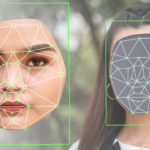Stuff reported a story that Māori businesses will soon have the opportunity to self identify as Maori.
For the first time, a national register will let companies say if they identify as a Māori business.
A change to the National Business Number register will give Māori enterprises the option to record data that identifies them as a Māori business, alongside details like their trading name, email address and phone number.
Announcing the change on Friday, Māori Development Minister Nanaia Mahuta said NZBN was designed to make it faster and easier to do business by holding core information on a digital register.
“Māori businesses will have a check-box field to complete on the digital NZBN register. To ensure consistency with other agencies, such as Stats NZ, businesses will be able to self-identify as a Māori business based on a number of factors.”
Factors which might influence their decision to identify as a Māori business could include ownership and directorship, staff members, philosophy and tikanga, management practices, branding and marketing, tangible assets such as land or fishing rights, or intangible assets like kaupapa Māori or cultural property.
It is long overdue that Māori businesses can self identify as a Māori business. As Māori people, we have had the legal right for decades to self identify as Māori.
Having successive governments impose an identity criteria system on Māori is another form of the colonial “Blood Quantum” criteria. Blood quantum is an intergenerational colonising weapon used by settler coloniser states to assimilate Indigenous Peoples. This is how Māori businesses have been forced to self identify, meeting western corporate definitions defined by non Indigenous Peoples.
Blood quantum is in legislation in other countries that impact Native Americans, Alaskan Natives, First Nations. Often Indigenous Australian’s are increasingly being asked to justify their ethnicity based on the physical appearance not meeting a non Indigenous stereotype of what an Indigenous Australian’s physical appearance should look like. Even today in New Zealand society it is common to hear “what percentage Māori are you” being asked by individuals questioning the ethnic backgrounds of Māori . It is a non Indigenous way to self identify that the western world uses to dictate identity for Indigenous Peoples.
The fundamental principals of the Māori world are based on an ancient custom called ‘whakapapa’ or genealogy and relationships. Māori identify as Māori based on a whakapapa to at lease one Māori ancestor who has a whakapapa to atua and to Ranginui and Papatuanuku. Every natural object in the Māori world is connected to each other and every action and inter connection has, and creates a new whakapapa. This is how the Māori world is identifies and is structured. It is overdue that businesses are now afforded the same right.
If a business has one Māori director or no Māori directors but a majority of the work force are Māori, or the majority of the clientele are Māori, then that business should be able to decide if it is a Māori business or not. It should never have been dictated to by a government or other western structure or authority about identity rules.
“As the economy continues to pick up momentum following the impact of Covid-19, we will be able to track how Māori businesses are responding too,” Mahuta said.
“The impact of Covid has been uneven across sectors, and I expect we will see similar results for Māori enterprises.”
In 2013 BERL estimated that the Māori economy was valued at approximately $42 billion and that more than 70 per cent of the Māori economy was made up of sole traders and small and medium enterprises (SMEs).However, there is a lack of official data relating to Māori businesses and their contribution to the economy, Mahuta said.
“One of the key challenges is being able to reliably identify Māori businesses. An identifier for Māori businesses in the NZBN Register will help to rectify this.”
The NZBN register includes all types of businesses, like sole traders and the self-employed, trusts, contractors, tradespeople, partnerships, limited liability companies and also public sector agencies.
The ability to self describe as a Māori business will also provide more accurate data of the significant contribution to New Zealand’s economy. Using estimates in this day and age is not appropriate.
The issues will likely arise when applying for Māori business funding or listings on Māori and Indigenous business hubs and directories. There is also a myriad of Māori business networks around the country who support each other. This initiative could expand those networks. A number of new business opportunities could be created with bulk buying and further employment options.
Small Business Minister Stuart Nash said the register offers a link to the business information often asked for by other businesses, organisations and government agencies.
“The change will allow for more accurate measurement of Māori economic activity, make it easier for investment or collaboration with Māori businesses, and better measure the effectiveness of government policies for Māori economic development.”
Traci Houpapa, chairwoman of the Federation of Māori Authorities, said it had been great to see the Government listen to its issues and suggestions and to see tangible results.
“There is more work to do but we can finally start to see a solution to the lack of data on Māori economic activity.”
NZ Māori Tourism chief executive Pania Tyson-Nathan said it had always been difficult to understand the issues and needs of Māori SMEs.
“Collecting data on who they are and what they provide will help us to understand how we can support those businesses,” Tyson-Nathan said.
The Māori business identifier is now being built into the NZBN. Existing and new businesses will be invited to update or register their information when it becomes available.
Nash said it could take up to two years for the system to be fully functional and for businesses to update their information, as the process is voluntary.
What could be more beneficial is extra identifiers being added to the Māori business tag that reflect Māori society. Such as whānau, hapū and Iwi owned businesses or if it is the clientele and stakeholders are primarily Māori. This would allow among other things to see the impacts of investments and impacts of post treaty settlements and the flow on effects to the people and assist to differentiate Māori businesses in a similar manner that Māori distinguish themselves by Iwi, hapū and marae.
This does raise another current colonial issue of differential treatment by the Crown to Māori organisations. All of the New Zealand Universities have a Māori name to accompany their English title. But they all use the word ‘wānanga’ which is a word for a sacred learning school of traditional Māori that taught Māori knowledge. Yet, Universities are the opposite and most do not recognise Māori knowledge. The three Wānanga Awanuiārangi, Aotearoa and Raukawa are not allowed by legislation to call themselves a University.





Leave a Reply